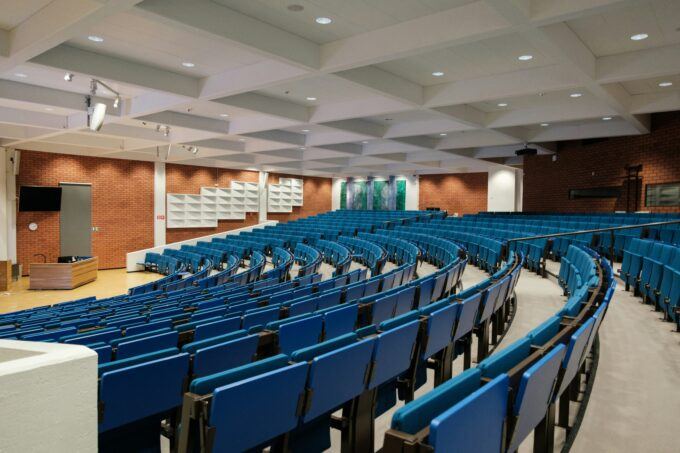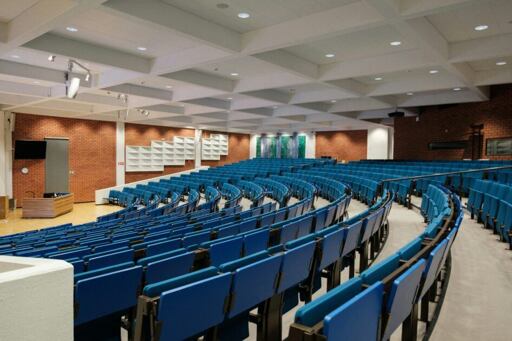
Image by Kübra Arslaner.
There have been a great many discussions in the news recently about the politics of academic teachers. And, generally, these accounts involve complaints that the faculty are disproportionately leftists, who indoctrinate their politically innocent students. I can speak with some knowledge here, for during a long career I taught philosophy and the art history in Pittsburgh and then Cleveland, and very briefly also at Princeton and in Beijing. Now, however, I am retired, and so my sense of this important issue is dated. That said, I have a pretty good sense of the practice of everyday teaching life in the late twentieth-century at good schools.
What seems most surprising to me in these popular account of academic life is the belief that the faculty often sought to indoctrinate their students in liberal leftist ideologies. When in my philosophy classes I presented Descartes, Kant, John Stuart Mill and Nietzsche; as in my art history discussions when we considered Vasari, Diderot, Panofsky, Gombrich and Clement Greenberg, we were never much concerned with politics as such. Indeed, I would have thought it unprofessional to say much about contemporary politics, when I had so many demanding intellectual themes to discuss. And after all, that was what my students came to learn. But I should note, that when, for example, I considered political theories of the state, I focused on John Rawls, who was a kind of liberal, and Robert Nozich, who was a conservative, for they were the two most prominent contemporary philosophers, I thought, who had discussed justice. And exactly the same points about politics could be made about my teachers, earlier, at MIT and Columbia University, who focused on the issues at hand, and not on politics. This, need I add, is not to say that I (or my teachers) did not have political opinions. Rather, it is to note that in general those concerns were beside the point when it came to teaching philosophy or art history. Arthur Danto told a story that is relevant here. His early book Analytic Philosophy of History (1965) was a study of historiography, the methods of history writing. And so at some point, he became aware that there were FBI agents attending the class, no doubt alerted because he discussed Marxism as historiography. How disappointed they must have been to discover that his philosophical analysis was concerned purely with methodology, not advocacy (or critique) of Marxism. But as any parent knows, there’s no better way to inspire critical thinking in the young than preaching.
It’s true, I grant, that some philosophers and some art historians had leftist views. Others, of course, were liberals or conservatives, while still others can’t really be classified in these terms. Greenberg, for example, was when young a Marxist, who (though he later changed radically his political views) imported that worldview into his art writing. But I am very unsure that understanding Greenberg’s analysis of Jackson Pollock would inspire a political activist. And, in any event, since the goal of teaching as I was taught and practiced it was critical thinking, teaching leftist subjects was hardly an exercise in indoctrination. Marxist theories, like liberalism and conservative views were the subjects for critique. The goal of teaching, certainly in philosophy, was to get students to argue. In that way, if you want an historical reference for this way of thinking, I would point to the Enlightenment, and the great essay by Immanuel Kant, “What is Enlightenment?” (1784).
As a teacher, I never cared whether my students agreed with me, so long as they understood the facts and argument at hand. Indeed, as a teacher my best moments came when they offered strong arguments, sometimes even claims I could not immediately answer with conviction. I remember fondly my two strongest undergraduate students, both women, who simply would not give up in debate, which impressed and immensely pleased me. I always looked forward to seeing them in class, knowing that the occasion would probably be lively. Sometimes you learn something important. Once I managed to say that in one recent period, there were no significant French artists, a claim which startled a grad student who was doing her thesis on one of them. I still can remember her forceful disagreement, which made her a true friend. As has been said before, the best students can teach their teacher.
I got some real perspective on teaching in America, I should add, when for a semester I taught first rate Chinese art students in two schools in Beijing. I did honesty tell them that although many of the leading scholars devoted to contemporary art were marxists, it was useful to recognize that (for reasons that deserve discussion) serious leftist politics has never been influential in America, even in the Great Depression. But it was hard to make out in class what these students thought. (I had better luck in private, where my TA and I discussed what Marx would think, had he visited contemporary China.) My Chinese ‘minder’, a friendly faculty member, introduced my presentations in Mandarin, which meant that I had no immediate notion of what was going on. I did, however, take the precaution of hiring one student to give me a private summary, over drinks after class. The best Beijing students were astonishing, but the teaching experience was a real lesson for me in the conversational style of America, which I learned to appreciate. That became clearer when I spent some time in Formosa, and experienced a very different, more American-style political environment.
I write this statement because I believe that it’s important for the public to understand what goes on in universities. None of this is to say that discussing politics is not important. Indeed many times, nowadays, I believe (or worry) that politics matters more than my writing about the visual arts. And certainly I would allow that there is often, perhaps always, a political dimension to thinking about art and philosophy. When I look back at my books about the paintings of Nicolas Poussin, the art criticism of Charles Baudelaire, the art museum, Sean Scully and world art history I find political concerns throughout. But any reader who wanted to identify my very real personal interests in contemporary politics would, I think, find little of immediate interest in most of these books. People who want to critique university life, which is an important, legitimate concern, need to begin by understanding what we do!
The post Teaching as a Political Activity appeared first on CounterPunch.org.
From CounterPunch.org via this RSS feed


